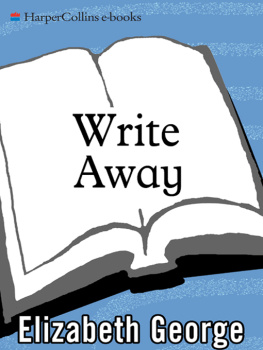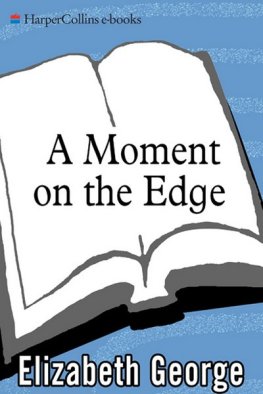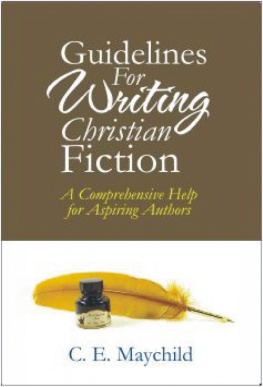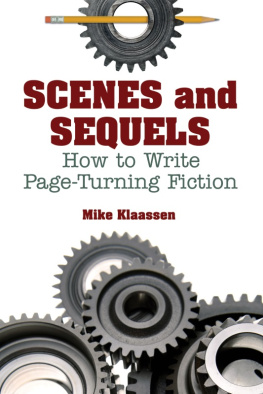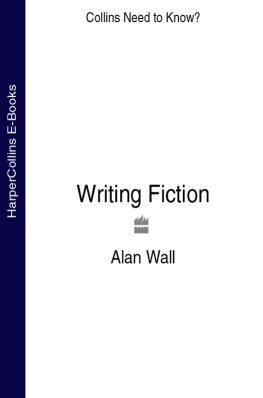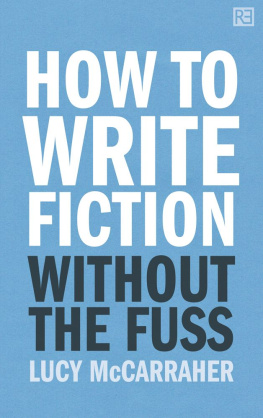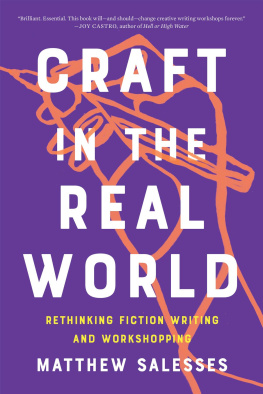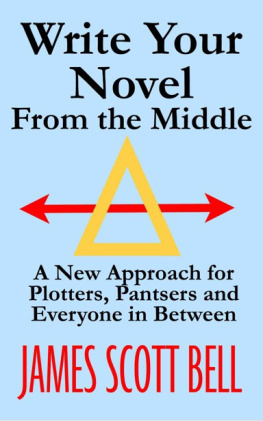I find it both fascinating and disconcerting when I discover yet another person who believes that writing cant be taught. Frankly, I dont understand this point of view.
Ive long believed that there are two distinct but equally important halves to the writing process: One of these is related to art; the other is related to craft. Obviously, art cannot be taught. No one can give another human being the soul of an artist, the sensibility of a writer, or the passion to put words on paper that is the gift and the curse of those who fashion poetry and prose. But its ludicrous to suggest and shortsighted to believe that the fundamentals of fiction cant be taught.
To believe this is akin to believing that no artistic medium can be taught. And to believe that is to believe that no artistic medium has tools and techniques, which the practitioner learns and then hones before she takes the leap from craft into art. Yet those who argue that writing cant be taught would probably be the first to agree that the basic principles of sculpture, oil painting, water color, musical composition, and so forth, ought to be dipped into before someone thinks herself a great master in any of those fields. Those very same people would also agree that everyone from Michelangelo to Johann Sebastian Bach probably had a bit of schooling in the field in which he excelled.
So, frankly, is the case for writing. Yet for some reason, this logic tends to be thrown out the window when it comes to the novel, to the poem, to the short story. It is indeed so much the case that Ive discovered in my book-related travels over the past fifteen years entire countries where people honestly believe that writing is a mysterious process that you either understand intuitively or do not.
Were lucky in the United States. Our tradition is that writers have long passed their craft along to other writers. For this reason, the novel, the poem, and the short story remain vital parts of our expanding literary tradition. Writing is no dying art form in America because most published writers here accept the wisdom and the necessity of encouraging the talent that follows in their footsteps. Saul Bellow, Philip Roth, Toni Morrison, Maya Angelou, Joyce Carol Oates, John Irving, Wallace Stegner, Michael Dorris, Ron Carlson, Thomas Kenneally, Oakley Hallthese are just a few of the writers who are or have been teachers as well. Their presence in the classroom demystifies the process. They share what they know, and the craft is better and stronger for it.
Craft is the point. Not art, which, as Ive said, cannot be taught. Nor passion, which cannot be taught. Nor discipline, which is essential but which, alas, also cannot be taught. Pure craft will, of course, not make someone Shakespeare. It wont make someone William Faulkner or Jane Austen. But it can and will serve as a guide, as the soil in which a budding writer can plant the seed of her idea in order to nurture it into a story.
That, then, is the purpose of this book. As a teacher of writing for a number of years, I believe in the mastery of craft. More than that, I believe that an understanding of craft is essential for most writers. A thorough knowledge of the tools of our trade is what gives us something to turn to when we run into difficulties. Without this knowledge, we are at the mercy of a Muse who may turn fickle at the very moment when were desperately depending upon her fidelity. Craft wont solve every problem a writer runs into during the creation of a piece. But it will eliminate a score of difficulties that the unschooled writer faces without it.
Although parts of my take on craft will be identical to that of other writers, much of it will be different. This is because each of us puts her own spin on the basic knowledge weve gathered over the years. I can only tell you what I believe, what I do, and what the result is. In short, I can only reveal my process to you and encourage you to develop your own.
But make no mistake about it. Developing a process means learning a craft because process itself comes from craft.
As for the art of writingthat is the mystery.
The art of writing is all about the inspiration of the moment and the excitement of riding the wave of an idea.
The art of writing is what you get to do once you become familiar with the craft.
Am I kidding myself about being a creative artist? Can I possibly be a creative artist if I approach this effort in so methodical and left-brained a fashion?
Journal of a Novel ,
June 25, 1997
A large piece of Plexiglas covers the top of my desk. Beneath this shield, I keep bits and pieces to serve as inspiration or to cheer me up in those moments of bleak despair when Im wondering why Ive taken on one difficult project or another. Among these items I have a copy of John Steinbecks letter to Herbert Sturz on the subject of The Grapes of Wrath I find his comments about critics particularly smile-producingas well as pictures of my dog, of myself grinning inanely alongside a wax effigy of Richard III from Madame Tussauds waxworks in London, and several quotations from writers on one subject or another. One of those writers is Isaac Bashevis Singer who, in an interview with Richard Burgis in 1978, said the following:
When people come togetherlets say they come to a little party or somethingyou always hear them discuss character. They will say this one has a bad character, this one has a good character, this one is a fool, this one is a miser. Gossip makes the conversation. They all analyze character. It seems that the analysis of character is the highest human entertainment. And literature does it, unlike gossip, without mentioning real names.
The writers who dont discuss character but problemssocial problems or any problemstake away from literature its very essence. They stop being entertaining. We, for some reason, always love to discuss and discover character. This is because each character is different and human character is the greatest of puzzles.
Thats where I want to begin, then, in laying the foundation for my exploration of craft: with character.
Not with idea? you may ask, aghast. Not with where a writer gets ideas? What a writer does with ideas? How a writer molds ideas into prose?
We will get to that. But if you dont understand that story is character and not just idea, you will not be able to breathe life into even the most intriguing flash of inspiration.
What we take away from our reading of a good novel mainly is the memory of character. This is because eventsboth in real life and in fictiontake on greater meaning once we know the people who are involved in them. Put a human face on a disaster and you touch people more deeply; you may even move them inexorably toward taking an action they might have only idly contemplated before that disaster was given a human face. Munich 72, the Achille Lauro , Pan Am 103, Oklahoma City, 9/11When these tragedies become human by connecting them to the real people who lived through them or died in them, they become imprinted indelibly on the collective consciousness of a society. We start with an event as news, but we almost immediately begin asking Who? about it.
Its no different with fiction. The trial of Tom Robinson is maddening, disturbing, and heartbreaking in its injustice, but we remember the trial long after its over because of Tom Robinsons quiet dignity and because of Atticus Finchs heroic representation of the man, knowing all along that his client is doomed because of the time, the place, and the society in which they both live. To Kill a Mockingbird thus rises to the level of timeless, classic literature not because of its ideathe innocence of childhood set into an ugly landscape of prejudice and brutalitybut because of its characters. This is true of every great book, and the names of those men, women, and children shine more brightly in the firmament of literary history than do the stories in which they operated. Elizabeth Bennet and Mr. Darcy, Jem and Scout Finch, Captain Ahab, Hester Prynne, Sherlock Holmes, Heathcliff, Ebenezer Scrooge, Huckleberry Finn, Jack-Ralph-and-Piggy, Hercule Poirot, Inspector Morse, George Smiley, Anne Shirley, Laura IngallsThe list can stretch from here to forever. With the exception of the last, not a single character is a real person. Yet all of them are, because the writers made them so.

